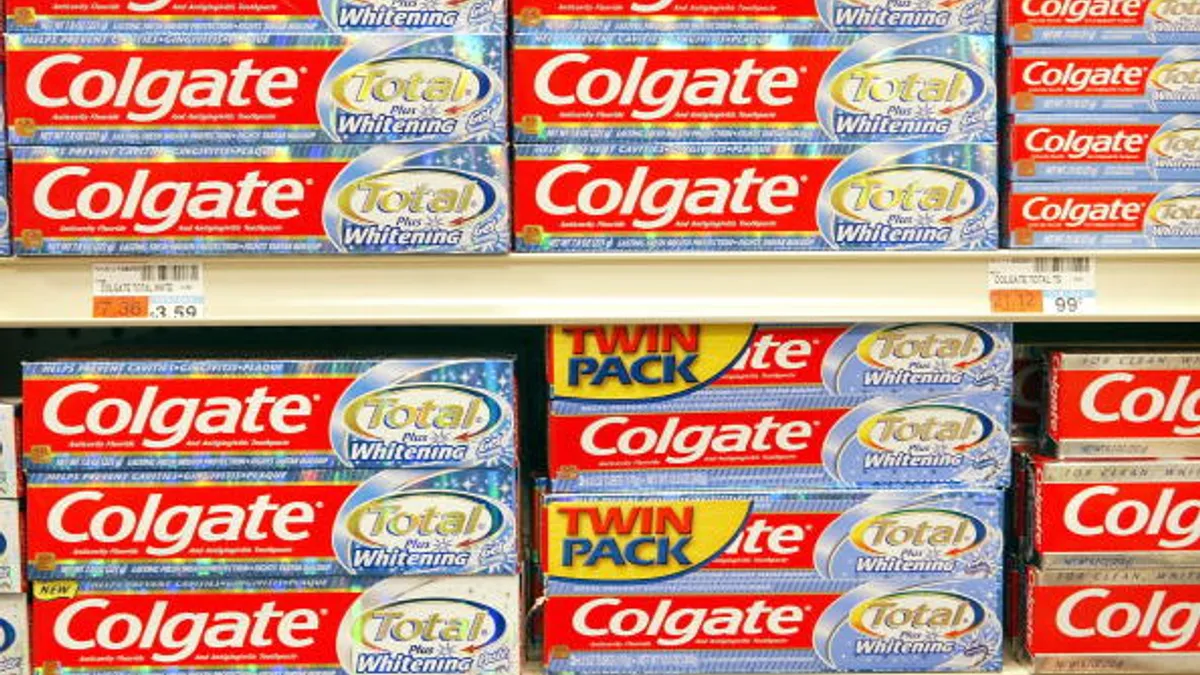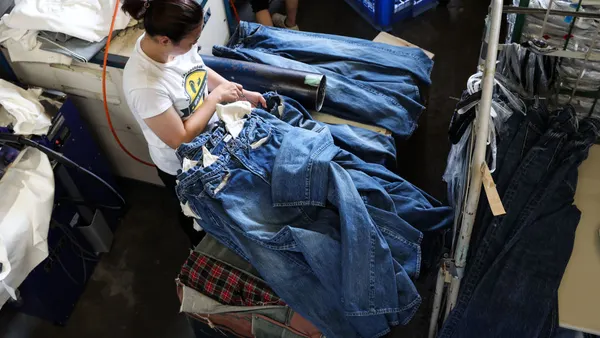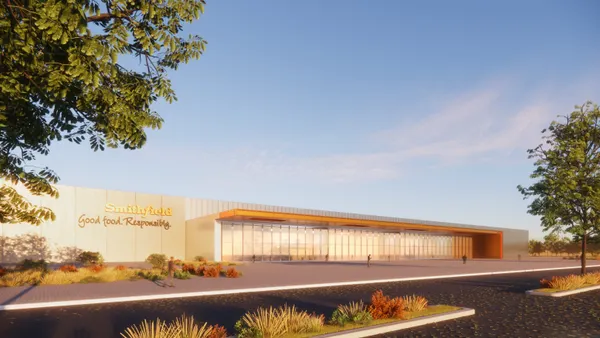Dive Brief
- Colgate-Palmolive expects to incur $200 million in increased costs related to tariffs enacted by the Trump administration in 2025, CEO Noel Wallace said on an April 25 earnings call.
- The impact will be equally split from Q2 to Q4 and primarily impact raw materials and finished goods shipped between China and the U.S., Wallace said, noting that the rise in costs does not include tariffs that have been postponed.
- "We have developed and are continuing to develop plans to deal with the tariffs over the short, medium and long term, including alternative sourcing, formula simplification, shifting production and revenue growth management," Wallace said.
Dive Insight
Colgate-Palmolive is one of many U.S. manufacturers diversifying their supply chain and reducing their reliance on suppliers in China, which have been heavily targeted by the Trump administration’s recent tariff hikes. Nevertheless, manufacturers like it have suffered tariff-induced pain, including higher costs and slowing customer demand.
Over the last few years, Colgate-Palmolive, which manufactures oral care, personal and home care, and pet nutrition products, has reduced the amount of raw materials and finished products it sources from China, executives said on the call. Also, the company has increased the number of its U.S. manufacturing facilities by more than 40% in the last five years.
While these modifications have provided more flexibility in the company’s supply chain, it has been insufficient to entirely counter new and increasing tariffs on imports from China and other countries.
“But the sheer size of some of these tariffs requires us to balance our strategy moving forward in terms of how we think we can offset that,” Wallace said.
Colgate-Palmolive has spent $2 billion on its U.S. supply chain since 2020. The money has gone to its oral, personal and home care businesses, and, with the opening of its Tonganoxie, Kansas, facility, more pet food manufacturing capacity, said CFO Stan Sutula on the call. The company's Hill's Pet Nutrition division opened the 365,000 square-foot facility in 2023 to increase production capacity for canned pet food.
"So, we're working hard to mitigate the incremental costs from tariffs, but we're going to do that through a combination of approaches of productivity, revenue growth management, formulation, sourcing and optimizing our supply chain," Sutula said.
















